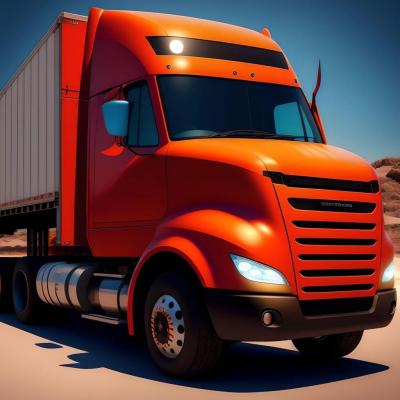






The information on this website is general in nature and does not take into account your objectives, financial situation, or needs. Consider seeking personal advice from a licensed adviser before acting on any information.
Public liability insurance is essential for any trucking business. As a trucking business owner, you are legally responsible for any incidents or accidents that may occur whilst operating your business. Without public liability insurance, your business may face significant financial losses.
If your trucking business is involved in an accident without public liability insurance, the costs associated with legal fees, compensation payouts, and property damage can be catastrophic. These costs can quickly add up and put your business in jeopardy.
Public liability insurance is designed to protect your trucking business from any claims made by third parties for property damage, personal injury or death caused during your business operations. This insurance will cover any legal costs, compensation fees, and other expenses incurred in the event of a claim.
One of the most significant benefits of having public liability insurance is that it ensures that your business is protected against any potential financial losses resulting from a claim. Without this insurance, businesses face significant costs and risks that can result in financial ruin.
Public liability insurance typically covers the following types of risks:
The cost of public liability insurance for your trucking business depends on a number of factors. Firstly, the size and type of your business will affect the cost of your policy. Insurance companies will take into account the number of vehicles in your fleet, the types of goods you transport, and the frequency and distance of your journeys.
Other key factors that may influence your premium include the level of cover you require, your claims history, and your business location. As a general rule, the higher your level of cover, the more expensive your policy will be.
It's worth noting that the cost of public liability insurance can vary greatly between providers, so it's important to shop around to ensure you get the best deal possible.
A number of factors can affect the premium you will pay for public liability insurance for your trucking business. These include:
It's important to keep these factors in mind when comparing policies from different providers. Make sure you are comparing like for like and that you are getting the level of cover you need for your particular business.
To get the best deal on public liability insurance for your trucking business, it's important to take a few key steps:
By taking these steps and being proactive in seeking out the best deal for your business, you can ensure that you are protected against any potential legal liability and are getting good value for money from your insurance policy.
In case of an accident involving your trucking business, not having public liability insurance can result in huge financial expenses. You may have to bear legal costs, medical expenses of the injured person, and damage repair expenses for the other party’s property if you are found to be at fault in the accident. The legal expenses can escalate quite quickly if litigation arises.
Public liability insurance offers financial protection to your trucking business in case of accidents. If your business is found responsible for causing damage to property or injury to individuals, the insurance policy will cover the legal expenses, medical expenses, and damage repair costs incurred by the other party. Having public liability insurance can also protect your business from bankruptcy in such cases.
There have been several real-life scenarios where public liability insurance has proved invaluable for trucking businesses. For example, a trucking company had to pay $3.5 million in damages after an accident resulted in the death of a motorist. Another business had to pay $1.8 million in damages after a truck carrying chemicals had an accident and caused a fire. In both cases, the businesses had public liability insurance which saved them from bankruptcy.
It's important to make sure that you have the right amount of coverage with your public liability insurance policy to protect your trucking business. The first step in ensuring adequate coverage is to closely examine your business needs and determine the potential risks associated with your operations.
One common mistake trucking businesses make is underestimating the amount of coverage they need. It's important to accurately assess your needs and liabilities to avoid being underinsured. In addition, make sure to carefully read your policy to understand what is covered and what is not.
You may also want to consider adding on additional coverage options such as cargo liability or physical damage coverage to protect your business even further. Lastly, it's important to review your policy regularly and adjust your coverage as your business grows or changes to ensure you have adequate protection.
One mistake trucking businesses often make when buying public liability insurance is solely focusing on the price rather than the level of coverage included in the policy. While it may be tempting to opt for a cheaper policy, it could result in being underinsured and potentially facing major financial losses in the event of an accident. Therefore, it's important to balance the cost of the policy with the level of coverage provided.
To find a reputable insurance provider who specializes in public liability insurance for the trucking industry, consider seeking out recommendations from other trucking business owners. You can also do your research online and read reviews of various insurance providers. Lastly, make sure to verify that the insurance provider is licensed and in good standing with your state's department of insurance.
Published: Wednesday, 24th May 2023
Author: Paige Estritori









